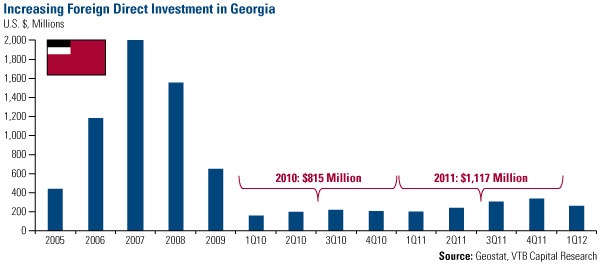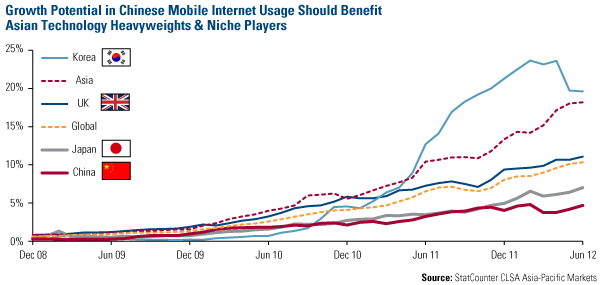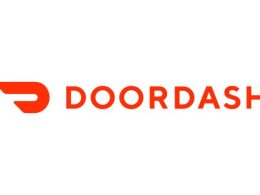Emerging Markets Radar (August 27, 2012)
Strengths
- The governor of China’s central bank, the People’s Bank of China (PBOC), said that the central bank likely will cut interest rates or the bank required reserve ratio (RRR).
- Polish retail sales accelerated in July, up 6.9 percent from a year earlier, compared to a 6.4 percent increase in June, according to the Statistical Office in Warsaw.
- Turkish dollar bond yields are dropping at a faster pace than those of South Africa and Brazil, as concerns fade that the crisis in Europe might destabilize the economy. The yields on 10-year debt dropped to 3.76 percent, a 2.36 move over the past eight months.
Weaknesses
- HSBC China’s flash Purchasing Manager’s Index (PMI) was 47.8 in August, the lowest level in the last nine months. It showed shrinking new orders and purchases, falling output prices and rising inventory levels. The market has intensified speculation that China will cut interest rates or reduce bank reserve requirements.
- Singapore’s July industrial production was up 1.9 percent, versus the market consensus of 6.8 percent.
- For Russia’s Gazprom, China is an important market which could provide a solution to the current oversupply of natural gas in Europe, but the talks between Gazprom and China over Russian gas deliveries have faded.
Opportunities
- One of the more resilient emerging economies during the current round of global turmoil, the Republic of Georgia, saw foreign direct investment of $1,117 million in 2011 (vs. 815 million in 2010). GDP growth in the first half of 2012 reached 7.5 percent year-over-year.

- Just recently, China International Marine Containers, listed in the China B-share market, announced a move to the H-share market in Hong Kong, giving investors two choices: either to go along to H-shares or to take cash with a 5 percent premium to the market price. China Vanke Co. Ltd also is considering listing on the H-shares market, which is most likely to provide China B-share investors some upside potential in the stock price since the H-share market is much more liquid.
- The chart below shows the potential business opportunities in online/social media advertisement, in smartphone adoptions and in e-commerce, as the smartphone penetration rate rises.

Threats
- This week, the PBOC injected net liquidity of nearly RMB 300 billion through reverse repo operations instead of adopting interest rate and bank reserve ratio cuts. Some in the market believe the PBOC’s cautious stance comes from its worries that inflation may increase after August, and that housing prices will rise. This policy dilemma may further aggravate the system-wide liquidity tightness when it is needed most.
- India is in dire need of investment in its power system infrastructure, but attracting this investment will require fundamental reforms in the power and fuel sectors. These reforms face tough political obstacles.
- The Rublevo-Archangelskoye project, which at the height of the real estate bubble in Moscow was $70 per square foot of land, was seized by the state bank. The underlying loan was $4 billion, or 150 basis points of the bank’s total assets.













